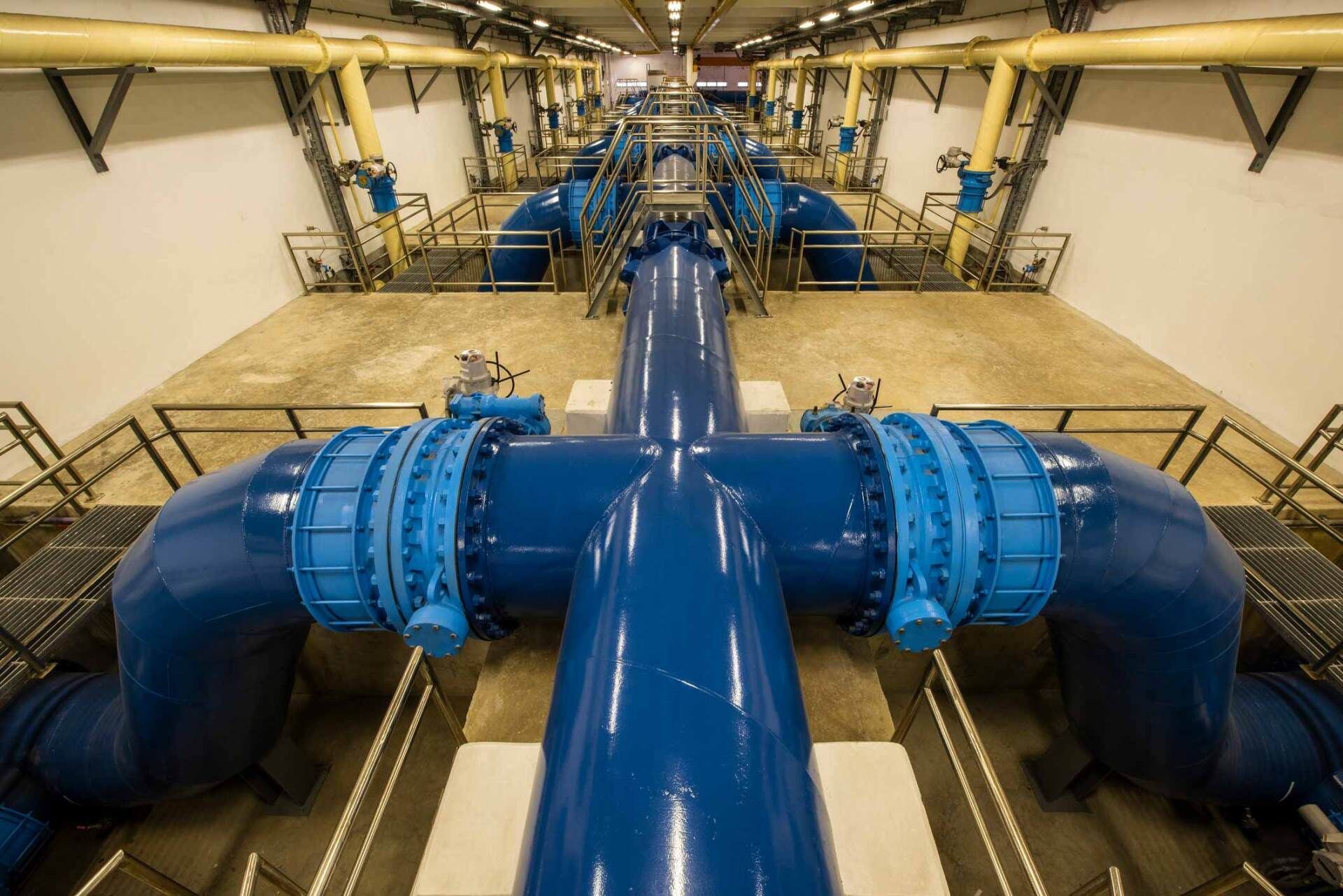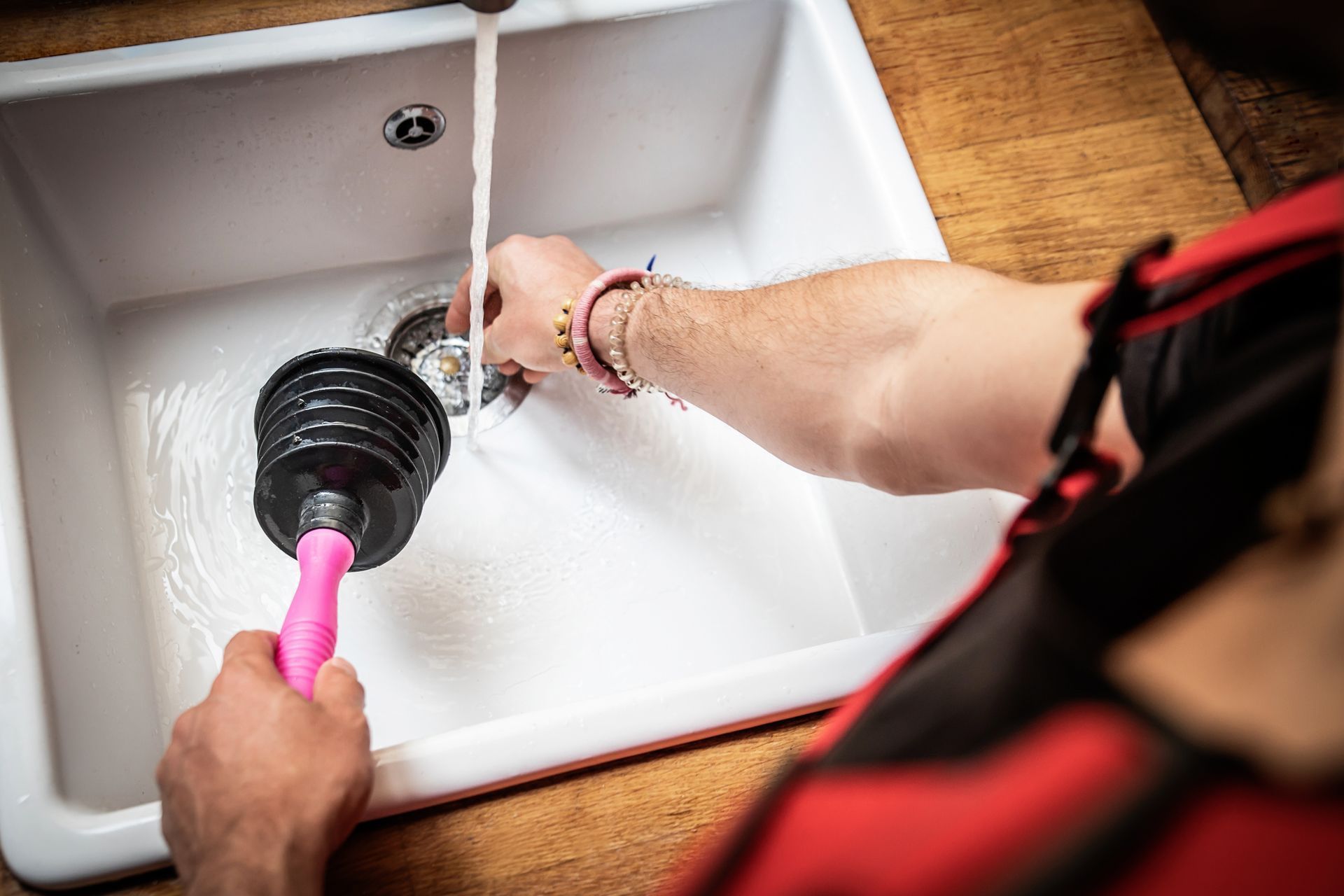Three Plumbing Systems to Install in Residential Construction Projects
March 31, 2022

Plumbing systems are integral to most, if not all, construction projects; you should account for a building's plumbing system during the design phase. Otherwise, you risk recurrent water supply and drainage issues. However, many people overlook installing efficient plumbing systems, only to consider them during emergencies such as flooded houses or compromised foundations. This blog discusses in detail three plumbing systems to install in your new construction project.
Potable Water Systems
Homes require a reliable water supply to complete domestic chores, underlining the importance of an efficient plumbing system. Nobody wants to live in a house with frequent water shortages arising from faulty pipes and faucets. Moreover, you do not want to incur the extra cost of requesting bulk water supply by tankers, not because of a water shortage but because of a faulty potable water system.
A good plumbing system accounts for your home's water needs, guaranteeing a reliable supply. Plumbers account for water pressure, sunlight exposure, and the size of your home when installing a potable water system. For example, PVC pipes may be unsuitable for carrying hot water because they might degrade or burst.
Plumbing systems should also protect potable water from contamination by minerals and microorganisms. Contaminated water exposes consumers to water-borne diseases such as cholera, Cryptosporidiosis, and Giardiasis, which can be fatal in young children. Similarly, contamination by minerals may alter the water's composition, resulting in taste and color changes.
Sanitary Drainage Systems
Sanitary drainage systems complement potable water supplies. Every building should have an efficient drainage system to accommodate its wastewater. Otherwise, the building may have plumbing issues like toilet backups and overflowing sinks. Such plumbing issues predispose a building's occupants to odors and health safety risks.
Remember, you may need to modify a building's sanitary drainage system depending on factors such as changes in water use or people traffic. Otherwise, you risk overwhelming the plumbing system, leading to pipe bursts. For example, increasing the number of occupants in a house often translates to more wastewater, which may overwhelm the plumbing system. Consider hiring plumbers to modify the plumbing system by installing larger pipes to drain the wastewater efficiently.
Stormwater Drainage Systems
Many people overlook stormwater drainage systems for reasons like cost-cutting or expediting project completion. Unfortunately, disregarding a building's stormwater drainage needs often leads to costly consequences within a few months or years. Rainwater may compromise your building's foundation or flood your basement. You may then have to incur remodeling or water damage restoration costs.
Rainwater may also cause soil erosion within your compound, undermining your homes' aesthetics. Imagine waking up to find most of the topsoil from your lawn on your doorstep. You will likely incur huge landscaping costs to restore your compound's initial status. Moreover, splash erosion may destroy your pavements, necessitating paving services.
A good plumbing system mitigates soil erosion and foundation damage by draining stormwater to sewer lines or septic tanks. Plumbers install adequate gutters around the building and any other structures that may collect rainwater, protecting your home against such issues. The plumbers also ensure the gutters are not leaking, guaranteeing reliable drainage.
Accommodating Future Building Extensions
Building extensions may require plumbing system modifications. For example, a new washroom requires a potable water supply and a sanitary drainage system for the wastewater. The modifications are not always as easy as extending the pipes to the new rooms. You should consider the impact of the additional rooms on water pressure. Plumbers may recommend replacing the current pipes with larger ones to achieve the same output.
Consult the Experts
Construction projects should incorporate plumbing services to account for the buildings' water supply and drainage needs. Effective systems safeguard buildings against future plumbing issues. Construction clients may contact O'Fallon Sewer Service for reliable advice concerning their plumbing needs.
Potable Water Systems
Homes require a reliable water supply to complete domestic chores, underlining the importance of an efficient plumbing system. Nobody wants to live in a house with frequent water shortages arising from faulty pipes and faucets. Moreover, you do not want to incur the extra cost of requesting bulk water supply by tankers, not because of a water shortage but because of a faulty potable water system.
A good plumbing system accounts for your home's water needs, guaranteeing a reliable supply. Plumbers account for water pressure, sunlight exposure, and the size of your home when installing a potable water system. For example, PVC pipes may be unsuitable for carrying hot water because they might degrade or burst.
Plumbing systems should also protect potable water from contamination by minerals and microorganisms. Contaminated water exposes consumers to water-borne diseases such as cholera, Cryptosporidiosis, and Giardiasis, which can be fatal in young children. Similarly, contamination by minerals may alter the water's composition, resulting in taste and color changes.
Sanitary Drainage Systems
Sanitary drainage systems complement potable water supplies. Every building should have an efficient drainage system to accommodate its wastewater. Otherwise, the building may have plumbing issues like toilet backups and overflowing sinks. Such plumbing issues predispose a building's occupants to odors and health safety risks.
Remember, you may need to modify a building's sanitary drainage system depending on factors such as changes in water use or people traffic. Otherwise, you risk overwhelming the plumbing system, leading to pipe bursts. For example, increasing the number of occupants in a house often translates to more wastewater, which may overwhelm the plumbing system. Consider hiring plumbers to modify the plumbing system by installing larger pipes to drain the wastewater efficiently.
Stormwater Drainage Systems
Many people overlook stormwater drainage systems for reasons like cost-cutting or expediting project completion. Unfortunately, disregarding a building's stormwater drainage needs often leads to costly consequences within a few months or years. Rainwater may compromise your building's foundation or flood your basement. You may then have to incur remodeling or water damage restoration costs.
Rainwater may also cause soil erosion within your compound, undermining your homes' aesthetics. Imagine waking up to find most of the topsoil from your lawn on your doorstep. You will likely incur huge landscaping costs to restore your compound's initial status. Moreover, splash erosion may destroy your pavements, necessitating paving services.
A good plumbing system mitigates soil erosion and foundation damage by draining stormwater to sewer lines or septic tanks. Plumbers install adequate gutters around the building and any other structures that may collect rainwater, protecting your home against such issues. The plumbers also ensure the gutters are not leaking, guaranteeing reliable drainage.
Accommodating Future Building Extensions
Building extensions may require plumbing system modifications. For example, a new washroom requires a potable water supply and a sanitary drainage system for the wastewater. The modifications are not always as easy as extending the pipes to the new rooms. You should consider the impact of the additional rooms on water pressure. Plumbers may recommend replacing the current pipes with larger ones to achieve the same output.
Consult the Experts
Construction projects should incorporate plumbing services to account for the buildings' water supply and drainage needs. Effective systems safeguard buildings against future plumbing issues. Construction clients may contact O'Fallon Sewer Service for reliable advice concerning their plumbing needs.
This article takes a detailed look into the most prevalent factors contributing to sewer backups in and around your home. Read on for more.
The pipes in your home and workplace are often out of sight, out of mind. But as they age, they can pose a variety of issues. Read about them in this blog.
Bursting water pipes is a common issue that homeowners face. Here are some common causes of burst pipes and how you can prevent this unpleasant issue.
Some tree roots invade underground drainage pipes and wreak havoc. Discover how to safeguard your investment and keep your drains flowing freely.
One way to increase value is upgrading the plumbing system. Read on to discover four plumbing ideas to help increase a home's worth before selling.
If you own a home with a septic tank, locating your septic tank can be difficult. Discover five simple ways to locate your septic tank.
As a homeowner, you must learn to detect sump pump issues early. Read this blog to learn about four common sump pump issues to look out for.
If you get the right plumber for your home, you will save money and time. Discover how to find the best plumber for your next project.








